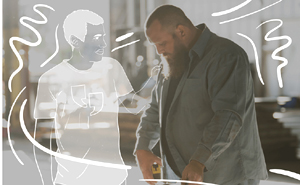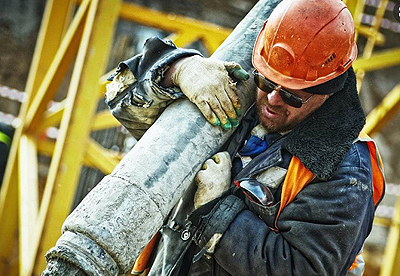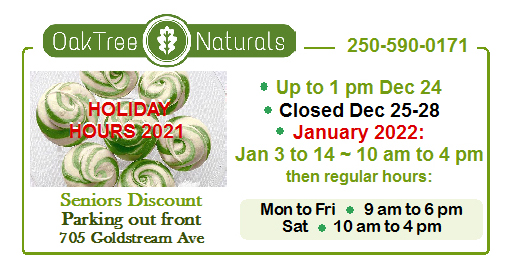Thursday January 13, 2022 | VICTORIA, BC [Updated 5:10 pm]
by Mary P Brooke, Editor | Island Social Trends
Today the leadership of local industry has led to a collaboration with government to help stem the tide of substance use among workers in the construction industry.
People working in the construction industry will benefit from access to life-saving harm-reduction training in the workplace, substance-use support groups and information on local community resources thanks to $1 million in provincial grant funding that is going directly to the Vancouver Island Construction Association (VICA).
The funding will allow VICA to hire additional staff, develop resources and expanded the Tailgate Toolkit provincially. Tailgate Toolkit is a harm-reduction program to prevent toxic drug poisoning in BC’s construction industry. As part of the expansion, VICA will hire Tailgate Toolkit coordinators in three regional construction associations — VICA, Vancouver Regional and Southern Interior Construction Association, as well as developing regional-specific guides for those three regions and the Northern Regional Construction Association.
Government support:
The announcement about expanded drug-poisoning prevention services for construction workers was made today on a YouTube livestream by Sheila Malcolmson, Minister of Mental Health and Addictions, and Harry Bains, Minister of Labour.
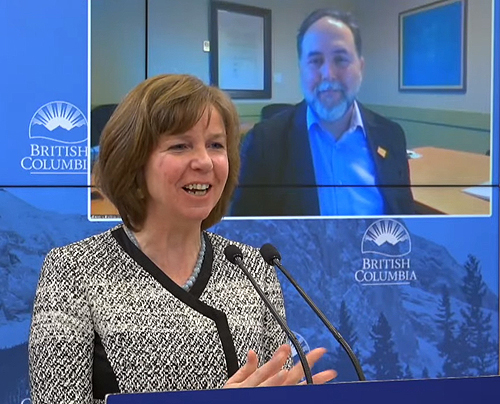
The ministers were accompanied online by Vancouver Island Construction Association (VICA) CEO Rory Kulmala whose organization spearheaded the Tailgate Toolkit project last year. VICA represents the sector of the construction industry that builds institutional, commercial and industrial (ICI) structures.
Kulmala has been CEO with VICA for five years, seeing the changes in the industry due to a number of factors, including the pandemic; VICA now has a 15-member board that is addressing safe working environment, construction worker well-being, supply chain challenges, economic recovery, and planning for resilience.
Also speaking today was Chris Atchison, president, BC Construction Association who noted that as many as 200,000 “skilled and essential professionals remain committed to building this province”. The new Tailgate Toolkit program “will save many lives in BC,” he said, by guiding people to take their life back from addiction.
Also part of today’s announcement was Trevor Botkin, executive director and project manager, HeroWork Victoria. He has lived experience with substance use working in the industry.
Addressing substance use impacts:
The project is intended to reduce the stigma associated with substance use and raise awareness of pain management, offer pathways to treatment and provide other information about mental health and substance use.
“The toxic drug crisis continues to take lives at a tragic rate. In cases where we know where someone worked, nearly 20% of those who died worked in trades, transport or as equipment operators,” said Sheila Malcolmson, Minister of Mental Health and Addictions. “I am grateful to the Vancouver Island Construction Association and our partners for bringing the Tailgate Toolkit directly to the workplace. It will save lives and connect people to the services and support they need.”

The expanded toolkit will allow workplaces to educate staff about substance use to help prevent toxic drug deaths, as well as harm-reduction and recovery strategies and employee resources. Workers with substance-use challenges will also have access to weekly support groups facilitated by front-line workers with lived experience of substance use and working in the construction industry.
“It’s heartbreaking that so many people throughout BC continue to be affected by the illicit drug-poisoning crisis. It’s essential that workers and all British Columbians have access to the information and supports they need to prevent toxic drug overdose,” said Harry Bains, Minister of Labour. “The expansion of this program will ensure construction workers know the risks and feel empowered to get help when they need it.”
Pain management can lead to addiction:
“The job has physical demands, they get injured, and there is pain management (with medication),” says Kulmala. COVID-management stresses would not have helped. He outlined those issues in an interview about VICA with Island Social Trends in November 2021 including that about 25 percent of opioid-related deaths were among people working on construction (mostly men in their 20s to 50s). Sadly, it could be extrapolated that the consistently lower number of COVID-related deaths in 2020 and 2021 in the 40 to 50 age group (seen in BC Centre for Disease Control stats) could have been due partly to the opioid overuse in that age group (reducing the overall number in that age group).
For workers who need time off to sort out their addiction, with support, how will their time off be paid for? Malcolmson said that will “depend on their union environment and collective agreement” as well as their work situation and workplace. “It’s a sick leave issue.”
Kulmala said it’s important “to help those people get the help they need”. He said the Tailgate Toolkit program will be trying to coach companies to dedicate the “time and investment” to be part of the solution. Construction companies know that it’s “a stressed labour market… we need all hands on deck,” said the VICA CEO.
Skilled workers:
Workers in the construction industry are “very skilled and competent”, said Kulmala.
He illustrated that workers will be seen as extremely hard working on the job site but that “they go home and collapse”, which the unseen part. If employees need a few days off to regroup or reduce their stress, Kulmala hopes that employers will see the value in that.
A social problem affecting workers:
Last year VICA saw that the age profile of most of their workers lined up in parallel with the demographic of many of the people (mostly men in their 20s to 50s) who have been suffering from addiction and dying of toxic substance use. Kulmala is obviously not happy to report that about 25 percent of opioid-related deaths were among people working on construction. “It’s a social problem that is affecting our workers,” he said.
Numbers released from the B.C. Coroners Service in December 2021 showed a death toll through the first 10 months of 2021 at 1,782, surpassing the 1,765 deaths recorded in all of 2020. October 2021 was a record month, with 201 deaths due to toxic-drug overdose.
Of the toxic-drug related deaths, 81 percent were male, in the 24 to 59-year-old age groups. The demographic lineup with the construction industry is that “they work hard, they play hard”. The idea of “male bravado” is prevalent, in that seeking help is usually not readily done. “They’re reluctant to talk about it. Problems fester and this impacts workers.”
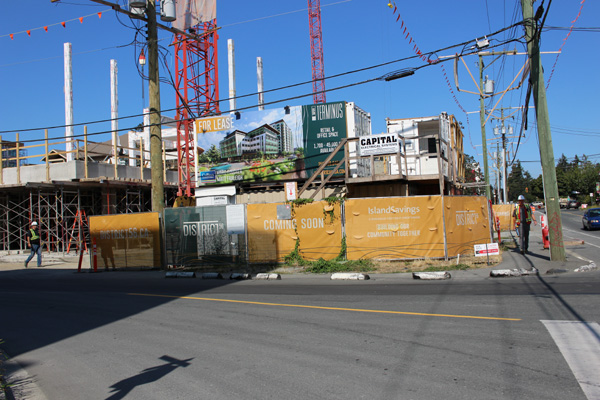
“The job has physical demands, they get injured, and there is pain management (with medication),” says Kulmala. COVID-management stresses would not have helped.
Kulmala last fall quoted public health statistics that 71 percent of fatalities due to substance use happen in private residences, among “people of means”. He states: “Our workers are part of this.”
“We want our workers to go home safe at the end of the day, and return to work the next day,” says the VICA CEO.
Today Kulmala stressed that substance use is “a community-based problem”. Those with substance use who are in the construction industry will — through the Tailgate Toolkit program — hopefully get the help they need to return to work. “If they’re going to contribute, they need to be healthy,” he said. He said that physical safety is generally taken care of on work sites (such as PPE for eye protection) but that emotional and mental stresses and pain management can be better addressed with attention to those health needs.
Employer leadership:
Botkin who himself dealt with substance use issues working in the construction industry, said that the on-site orientation will include sending home anyone who is “incapacitated or inebriated”.
Substance use “needs to be brought out of the darkness” and that people need to be seen “where they are at”, said Botkin during today’s media session.
The Tailgate Toolkit program is “an opportunity to open up that conversation”. He stressed the need for a job site culture of safety. Better to have people “go home and be healthy, and not die”, he said.
So far, 350 people have received services through the Tailgate Toolkit.
“We are relying on people in leadership to set that tone,” said Minister Malcolmson. She looks forward to seeing “employers stepping up”.
In 2021 BC brought in legislative that requires employers to provide up to five days of paid sick leave to employees.
COVID vaccination really “eased things up” for construction workers on work sites. More owners are demanding that construction sites have mandatory vaccination against the relentless virus that has been with us for now almost two years, said Kulmala last fall.
Started on the island:
This initiative has started with the Vancouver Island association and will now be shared with construction associations throughout British Columbia, including the Vancouver Regional Construction Association (VRCA), the Southern Interior Construction Association (SICA) and the Northern Regional Construction Association (NRCA).
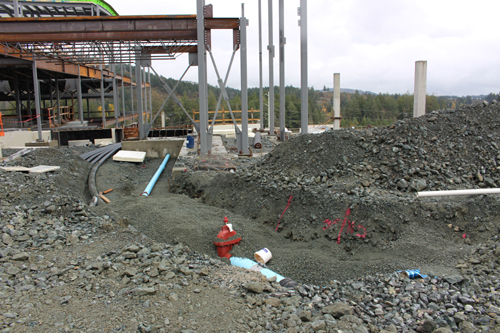
“We are eager to continue the work that we have been piloting over the past year and would like to thank the Ministry of Mental Health and Addictions for entrusting the Vancouver Island Construction Association with this funding,” said Kulmala.
“Through the support of our membership and our industry partners, we have been able to develop a truly grassroots initiative specifically designed for our workers including access to resources and support, which they may not have realized were available to them.”
“The $1 million in funding to VICA is going to save lives. We are honoured to be working with you,” said Minister Malcolmson to the VICA organization today.
Island Health was a supportive partner in development of the Tailgate Toolkit last year.
About the Tailgate Toolkit:
The Tailgate Toolkit will include training for managers and responders to recognize and provide support for people with substance-use and mental-health challenges, including mental-health first aid, naloxone training, pain management and more.
Construction associations will host dedicated harm-reduction coordinators. They will also provide access to print and digital resources developed in consultation with regional health authorities to highlight the harm-reduction and recovery services available to workers within and beyond their benefit packages.
As part of this project, construction associations throughout British Columbia, including the Vancouver Regional Construction Association (VRCA), the Southern Interior Construction Association (SICA) and the Northern Regional Construction Association (NRCA), will host dedicated harm-reduction coordinators. They will also provide access to print and digital resources developed in consultation with regional health authorities to highlight the harm-reduction and recovery services available to workers within and beyond their benefit packages.
The toolkit has been developed in consultation with people with lived and living experience to ensure it is useful and relevant to people in the construction industry.
Enhancing B.C.’s response to the drug-poisoning crisis is an integral part of A Pathway to Hope, B.C.’s roadmap for building the comprehensive system of mental-health and addictions care that British Columbians deserve.
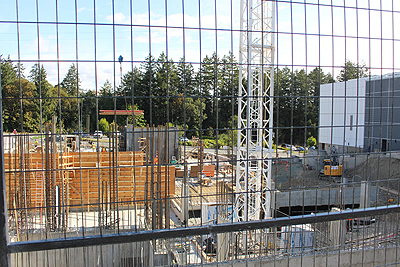
===== Quick Facts:
- According to the BC Coroners’ Service, between January and October 2021, 79% of those who died from suspected illicit drug toxicity were men.
- According to the 2020 Labour Force Survey, 86% of the construction workforce is male.
- VICA represents over 450 industrial/commercial/institutional construction companies, with members employing more than 4,000 individuals on Vancouver Island.
- VICA is associated with the British Columbia Construction Association and its regional construction associations, including VRCA, SICA and NRCA, which serves approximately 2,000 companies province-wide.

===== RELATED:
VICA aims to lead economic recovery through institutional, commercial & industrial construction (December 3, 2021)
Emergency update Dec 1: Financial relief, weather analysis, supply chain (December 1, 2021)
Saanich suddenly parts ways with CAO (November 30, 2021)
Trudeau meets with Premier Horgan after visiting flood-damaged agricultural area (November 26, 2021)
Reunion at Belmont construction is underway (November 19, 2021)
Langford announces bold low-carbon concrete policy (November 18, 2021)
Terminus building in Langford sets high standard for office space & services (November 5, 2021)
New Cowichan Hospital construction aims for 2026 completion (April 4, 2021)
COVID exposure at Customs House construction site March 15 to 17 (March 27, 2021)
===== ABOUT THE WRITER:
Mary P Brooke is the editor Island Social Trends, published by Brookeline Publishing House Inc. She has been covering community development news on the west shore since 2008.
The publishing office is centrally located in Langford where construction is booming, and covering news of the full Greater Victoria area and south Vancouver Island region.


